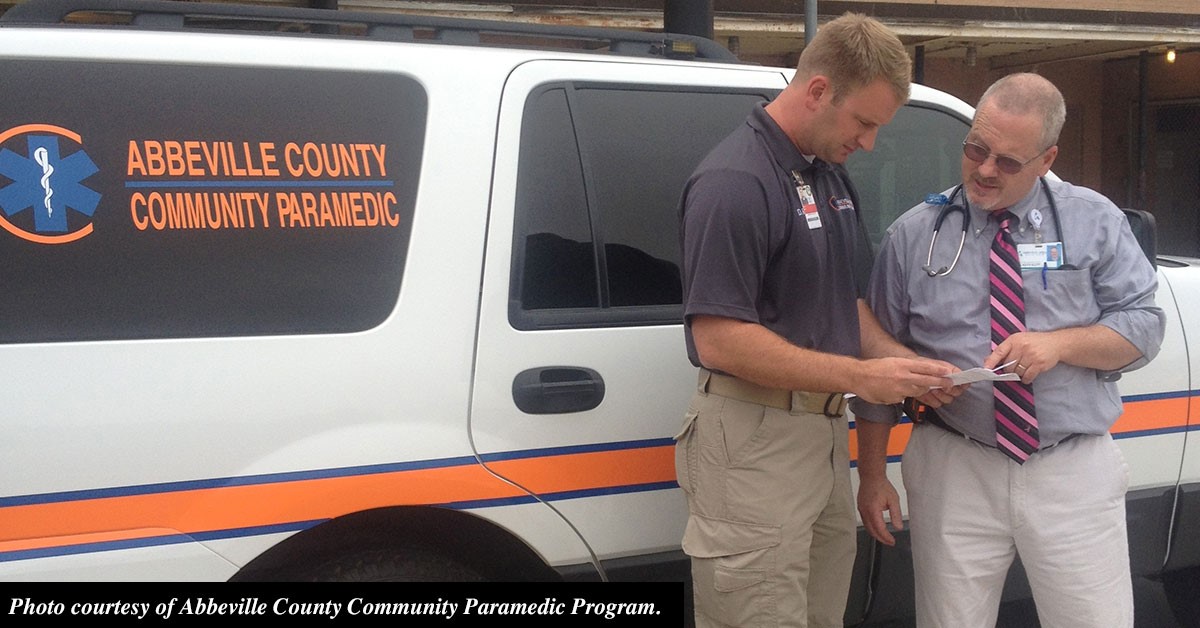Under President Trump, the Department of Health and Human Services (HHS) has been busy: approving record numbers of generic drugs, working to Increase affordable health insurance options, working to require more transparency in drug pricing, working to defund abortion facilities, protecting the right to conscience, and defunding research using tissue from aborted babies. Now, HHS is creating a new Medicare payment model that supports community paramedicine; this support has been sought by the emergency medical services (EMS) industry for years.
For those unfamiliar with community paramedicine, it expands the role of paramedics in health care resulting in better, faster care for patients and reduced costs for both patients and taxpayers. With an aging population, rising health care costs, and doctor and nursing shortages, it is vital that medical resources be allocated and care delivered in an efficient manner, and community paramedicine does just that.
Starting next year, HHS will begin paying participating ambulance providers to take Medicare patients to their doctor’s office or to an urgent care center, to treat them at home, or even to provide telehealth if that is medically appropriate and allowed by state laws. (An example of telehealth would be a doctor evaluating a patient who is located hundreds of miles away using a smartphone and secure videoconference technology.) This new payment model encourages paramedics to check up on forgetful patients to see if they have taken their medications, to help patients who have fallen to locate tripping hazards in their home, and to help asthma patients avoid things that trigger attacks – all of which helps reduce the likelihood of a patient needing to visit the emergency room.
The current Medicare regulations that only allow payment for ambulance services when patients are taken to the hospital, a skilled nursing facility, or a dialysis center have encouraged wasteful spending. Patients have long been transported to the emergency room regardless of whether that was the most appropriate place to treat them. In addition to being wasteful, emergency departments have been needlessly strained and treatment has been delayed for patients. A nationwide study in 2013 estimated that 17% of all ambulance transports were medically unnecessary. Furthermore, the overutilization of emergency rooms was estimated in 2010 to cost about $38 billion each year.
A number of localities across the country have implemented community paramedicine programs and have seen positive results.
- A study of a Houston Fire Department telehealth-enabled EMS program found that it reduced ambulance trips to the emergency room by 56%.
- A community paramedicine program in St. Paul, Minnesota helped nearly 80% of the diabetic patients in the program to reduce their blood sugar levels; the same program helped nearly half of the patients with high blood pressure in the program to lower their blood pressure to healthy ranges.
- A pilot community paramedicine program in Peoria, Illinois saw an 89% reduction in emergency room trips for the hundreds of patients the program contacted.
- A community paramedicine program in Pittsburgh that enrolled 269 people, who had recently been released from the hospital, saved an estimated $1.8 million in health care costs over two years.
- A community paramedicine program in Vail, Colorado estimates that it saves the health care system an average of about $5,200 per patient.
HHS’s support for community paramedicine could make a huge difference in Medicare patients’ lives. By checking on newly-released patients and those with chronic health problems, taking patients to doctor’s offices or urgent care centers when appropriate, and handling minor health issues at patients’ homes, community paramedics can reduce unnecessary ambulance trips to emergency rooms and hospital admissions, thereby reducing healthcare costs for both patients and taxpayers. While community paramedicine programs have shown great promise, finding funding has not always been easy. HHS should be applauded for embracing and helping to fund these innovative, patient-centered programs.
Richard McCarty is the Director of Research at Americans for Limited Government Foundation.







